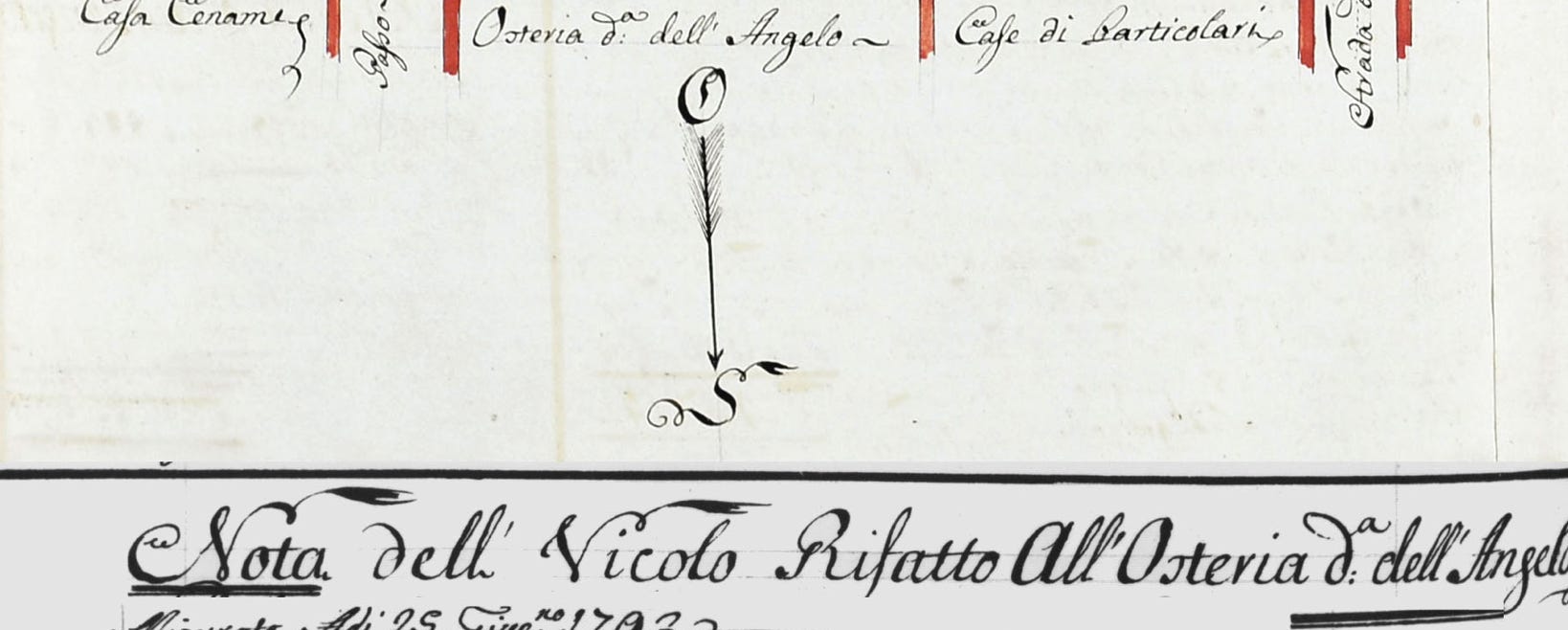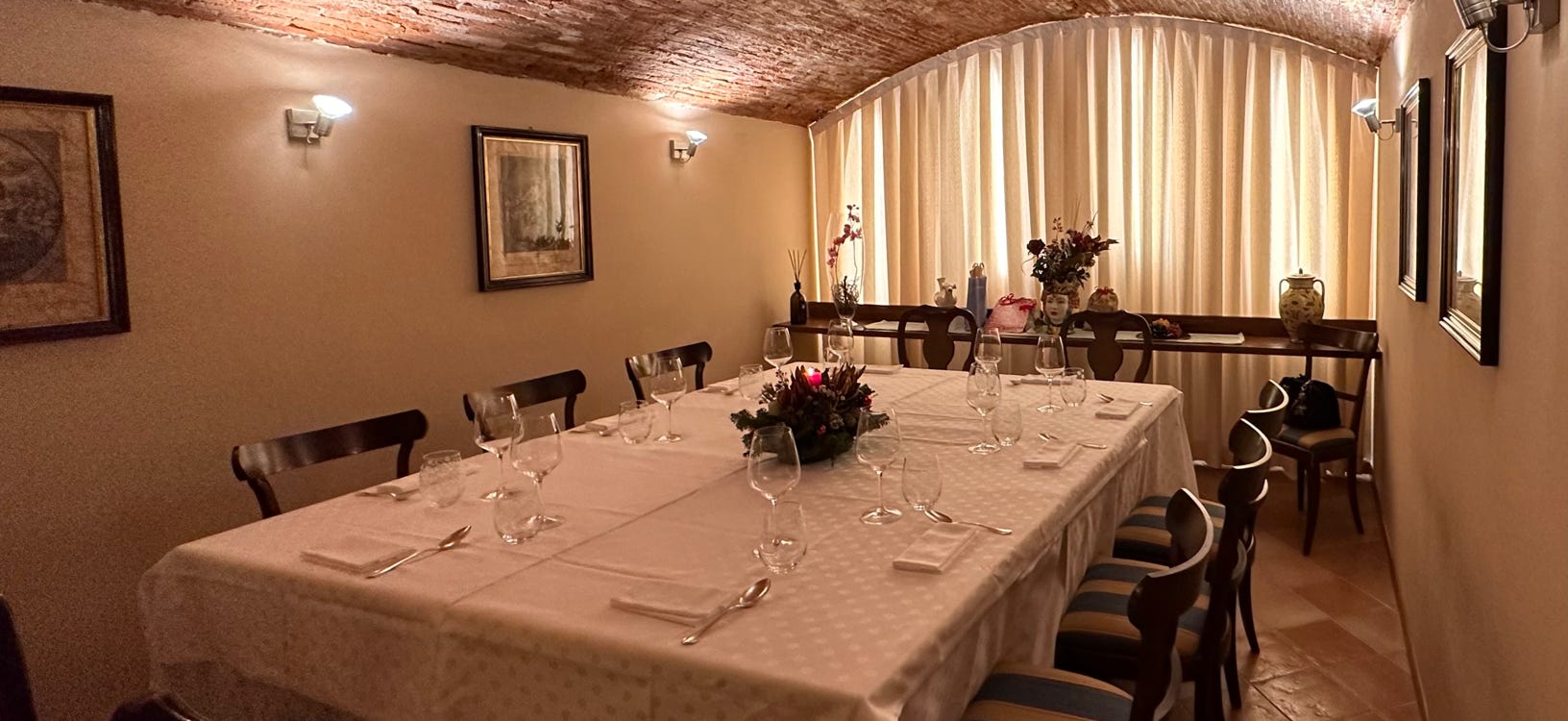A BIT OF HISTORY

The very ancient “Locanda dell’Angelo”, once “Hostaria dell’Angelo” (Angel’s Lodging House), inherited its name from the convent dedicated to Saint Michael the Archangel.
We are not sure if this convent was founded in 764 by Teurprand and his wife Gumpranda, two rich merchants who left their possessions to the nearby Saint Michael Church, or at the beginning of the 10th century by Aliprand.
An aedicule from sixteenth-century, realized by Baldassar Guinigi and restored in the 19th century by Eusebio Puccioni, gave an account of an ancient religious presence in the Angel’s Court.
The oldest news about “Hostaria dell’Angelo” tell us that Giuliano di Nicolao was the host of the lodging house on January 1st 1414. There were seven beds in the six rooms, according to a beautiful and rare map from sixteenth-century. The bedrooms were located at the first floor of the building, which faced from one side Via Pescheria, and from the other Angel’s Court. The restaurant was on the ground floor, and the cellar was in the basement. The cellar, according to the official inventory from eighteenth-century, was full with big red and white wine casks of the surrounding hills. The horse stabling and the stagecoach of customers were located in the Angel’s Court.
Close to Saint Michael Place, which is in the heart of Lucca, once the ancient Roman “forum”, the “Locanda dell’Angelo” used to attract a large amount of Italian and foreign merchants, who came to Lucca in order to buy its silk, which was famous in all Europe.
There were also a large amount of merchants and sellers from the nearby cities, who used to come to Lucca to make deals in the close corn market in Saint Michael Place, or in the herb market in 20th September Place, or in the fish market in the homonymous court.
The prestigious name of the very rich Guinigi family was a guarantee for the hosts. The Guinigi became owners of the “Locanda” and of three other lodging houses, provided with refreshment and stabling, and located in Viareggio, in Borgo a Mozzano and on the Pizzorne Upland. The Dovichi and the Federighi followed the Guinigi.
In the Thirties the ancient “Locanda dell’Angelo” risked to be demolished, together with the entire building complex between Via Roma and 20th September Place. However, it survived the destruction and could carry on its activity. After a careful restoration process occurred in the Eighties, promoted by the Municipality of Lucca, that owned it, the Locanda got back to host, as in the past, the lovers of its food, who come from abroad, from the various Italian cities and from the small towns surrounding Lucca.
As a logo, we chose the image of an angel, and not of St. Michael the Archangel, since we preferred to refer to the more humble name that has been attributed to the Locanda and the homonymous court for many centuries.
During the restoration works, in the underground floor, we discovered interesting findings and building elements coming from the Middle Age.
